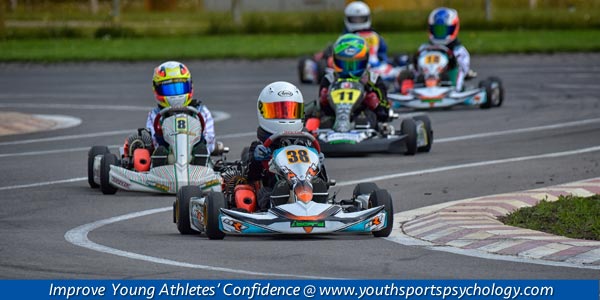
Attributes of Successful Young Athletes
Super focus, passion and visualization were the main mental game attributes that helped 16 top athletes succeed, said the author of a new book, “Trust the Grind,” that’s based on interviews with the athletes.
Jeremy Bhandari, the 23-year-old sports lover who wrote the book–which is for middle school kids and above–displayed his own super focus and passion in researching and penning the book, he told us in an interview with Ultimate Sports Parent Radio.
At age four or five, Bhandari loved reading the sports section of the Boston Globe and doggedly followed his favorite athletes. He went on to write blogs about sports, and then to become a researcher for ESPN after graduating from college.
For his book, he interviewed Jason Kidd, Terrel Owens, Luis Gonzalez, Georges St-Pierre and others.
He decided to write the book, he says, to teach kids how top athletes achieve greatness and to provide tips that might help kids pursue their dreams in and out of sports.
“If you don’t have your mind right, it doesn’t matter how talented you are,” said Bhandari.
Superfocus–close to obsession–was the key to Georges St-Pierre’s greatness as a martial artist, said Bhandari. So was visualization.
“With one opponent, he could only think about visualizing the other guy’s moves and ending up on top, getting him into submission and always in his mind coming out on top. He replayed this over and over in his head.”
When St-Pierre began to compete, he was on “autopilot.” Hockey pro Mike Modano told Bhandari that ahead of his game, he would practice visualization, visualizing where he wanted to be on the ice. He also identified others’ weaknesses.
Baseball great Tim Hudson would do the same thing ahead of a pitching event, visualizing making pitches and striking out batters and visualizing success.
Overall, the athletes were ultra committed to their sport. “Without St-Pierre’s obsession and dedication to his craft, he wouldn’t have succeeded,” said Bhandari.
You can’t teach kids how to be committed to their sport because they have to want it more than you. But you can help them enjoy it and stay in sports longer by helping them have more fun and experience less pressure.
Listen to his Interview with Lisa Cohn:
Related Articles on Youth Sports:
- Help Athletes Trust the Training
- Helping Athletes Improve Trust in Skills
- The Importance of Playfulness and Trust in Youth Sports
*Subscribe to The Sports Psychology Podcast on iTunes
*Subscribe to The Sports Psychology Podcast on Spotify
The Composed Sports Kid

“The Composed Sports Kid” audio and workbook digital download program for young athletes and their parents or coach helps kids cope with frustration and anger in sports. Help your sports kids learn how to manage expectations and let go of mistakes so they can keep their head in the game.
The Composed Sports Kid system is really two programs in one–one program to train parents and coaches how to help their kids practice composure, and one program that teaches young athletes–ages 6 to 13–how to improve composure, let go of mistakes quickly, have more self-acceptance, and thus enjoy sports more!
